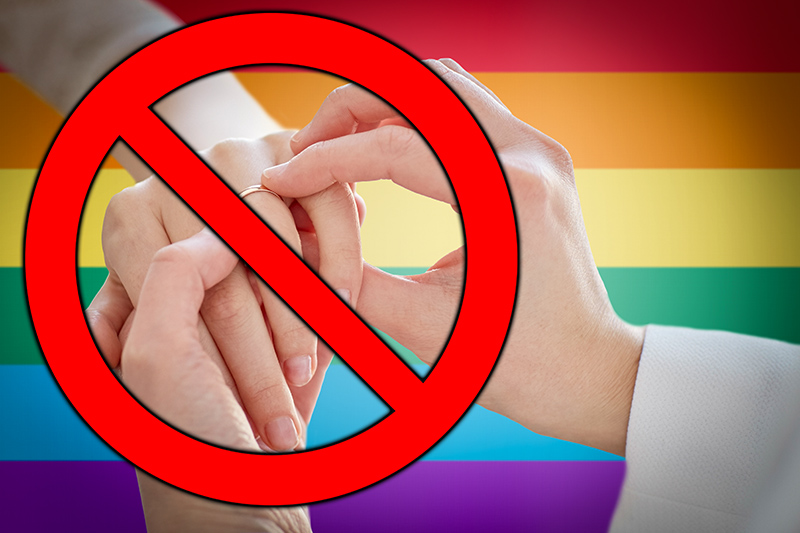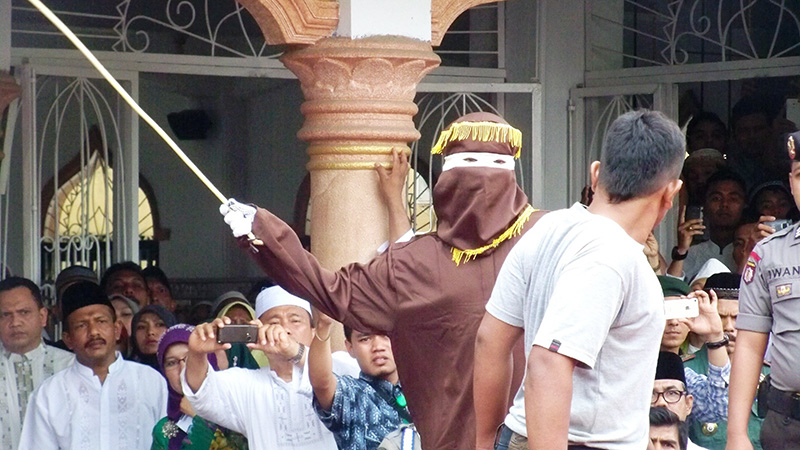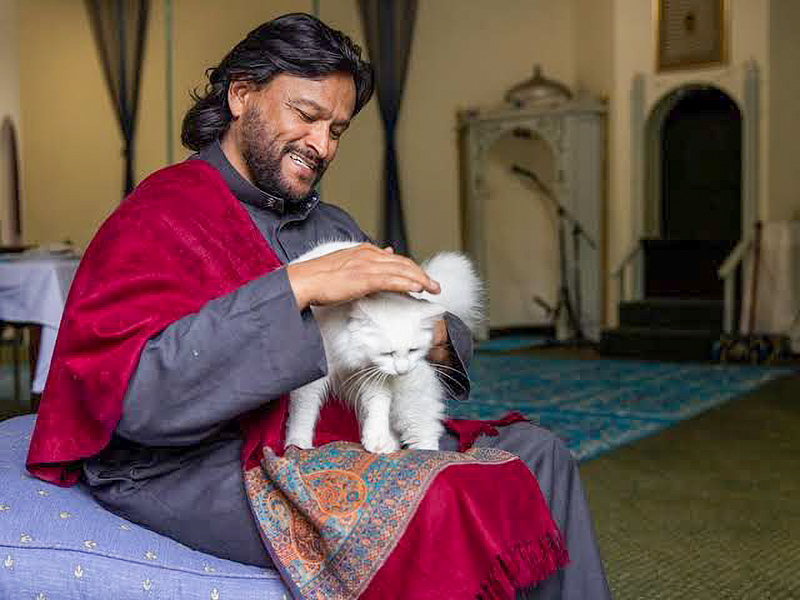Gay couple is publicly caned 86 times in Indonesia’s Aceh province
Victims were punished for violating Sharia law prohibitions on homosexuality

On Friday, several hundred people in Indonesia, including a group of Malaysian tourists, watched as a gay couple and 13 other people accused of breaking Sharia law were publicly caned outside a local Mosque in Aceh province.
According to The Sun, some of the spectators allegedly shouted at the officials carrying out the caning to “flog them harder.”
The two men convicted of having a homosexual relationship were initially sentenced to 90 lashes, but had their sentence reduced to 86 for the four months they spent in jail since their arrest.
The other victims, who were caned between 13 to 27 times, included heterosexual couples punished for showing affection in public, and people caught drinking or selling alcohol.
Perhaps most disappointing for human rights advocates was that government officials broke a promise to carry out canings inside of prisons or other detention centers, rather than in public. In April, Aceh’s then-governor, Irwandi Yusuf, signed a memo, along with the head of the provincial Law and Human Rights office, pledging to carry out the canings there.
But Muhammad Hidayat, the chief of the city security office, said that canings were still being held publicly “because there was no technical guidance yet” about how to carry out the canings inside prisons. He said the blame lay with the provincial prosecutor’s office.
Meanwhile, Erwin Desman, head of the provincial prosecutor’s office, said his office has not yet received guidance from the Law and Human Rights Ministry about preparing prisons to be a venue for the canings.
The promises by government officials regarding where canings take place were crafted in the wake of international criticism over the caning of hundreds of people accused of breaking Sharia law since the punishment was introduced in 2005. That criticism particularly intensified after May 2017, when two men suspected of engaging in consensual sex were caned 83 times in front of a jeering crowd.
At the time, Human Rights Watch criticized the punishment, calling it a “grotesque display of medieval torture.”
Aceh is the only province in Indonesia that practices Sharia law — a concession that the country’s government first made in 2001 as an attempt to placate a right-wing insurgency that had advocated for secession from the country. Due to the sensitive nature of that agreement — and the politically rightward shift of the province since then — the Indonesian government has been reticent to criticize some of the worst human rights abuses in the province.
In recent years, police and paramilitary groups, egged on by right-wing politicians, have taken it upon themselves to seek out places where LGBTQ people are thought to gather or to hunt down people accused of homosexual behavior, often charging them with other offenses, such as violating the country’s anti-pornography statute, to make an example of those arrested.
Human rights advocates have warned that police such harassment — not only in Aceh, but countrywide — could be fueling the country’s HIV epidemic and contributing to worse health outcomes because people are too scared to come forward and seeking testing and treatment.
Support Metro Weekly’s Journalism
These are challenging times for news organizations. And yet it’s crucial we stay active and provide vital resources and information to both our local readers and the world. So won’t you please take a moment and consider supporting Metro Weekly with a membership? For as little as $5 a month, you can help ensure Metro Weekly magazine and MetroWeekly.com remain free, viable resources as we provide the best, most diverse, culturally-resonant LGBTQ coverage in both the D.C. region and around the world. Memberships come with exclusive perks and discounts, your own personal digital delivery of each week’s magazine (and an archive), access to our Member's Lounge when it launches this fall, and exclusive members-only items like Metro Weekly Membership Mugs and Tote Bags! Check out all our membership levels here and please join us today!
























You must be logged in to post a comment.